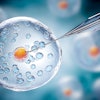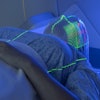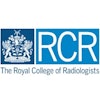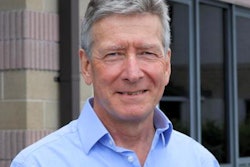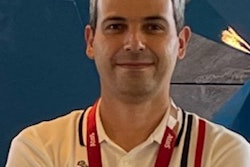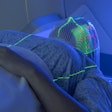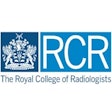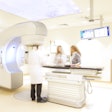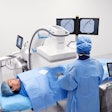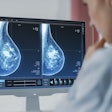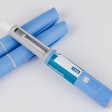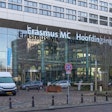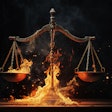
Having enjoyed the inspiring performances by athletes of all nations at the Tokyo 2020 Games, this feels like the right moment to float a concept I have been toying with for a while. Seeing the profile -- not to mention the funding -- which the Games attract, perhaps it is time that radiology had its own Olympics.
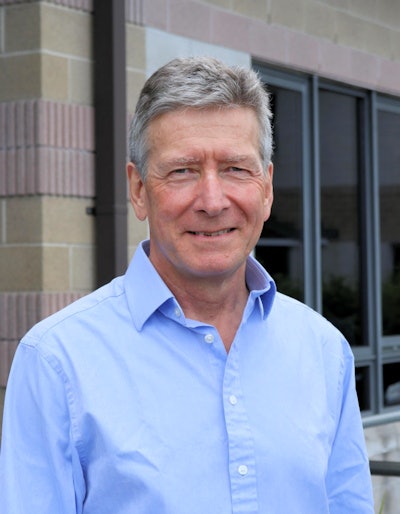 Dr. Giles Maskell.
Dr. Giles Maskell.Clearly not all Olympic sports would translate easily to radiological practice. Water-based events are probably best not considered for reasons of electrical safety, and equestrianism is an uncomfortable fit with obvious disadvantages. Weightlifting, although popular in the past, is no longer so useful in the era of digital imaging, and combat sports should obviously be discouraged in the interest of team harmony.
Despite these restrictions, I think it should be possible to assemble a varied menu of events that would hopefully attract a large television audience. Here is a small selection of possibilities:
Speed reporting: Not encouraged in real life, this exciting event pits competitors against the clock in reporting a predefined set of cases. Radiologists may compete in the specialty of their choice. The musculoskeletal competition tends to be over in a matter of minutes, while the neuroradiology contest may be a three-day event. Accuracy is important, as well as speed, with four faults for a minor error -- and disqualification in the case of a refusal.
Biops-athlon: Archery with a difference. In this event, radiologists are challenged to place a needle in a series of very small targets using image guidance within a time limit.
In a departure from usual clinical practice, the needle must be launched from the door of the scanning room without the radiologist entering the room. Points may be lost by hitting the pulsating red structures adjacent to the target. Bonus points are available for completely obliterating -- or "ablating" -- the targets.
Artistic reporting: Put away those checkbox structured reports for this event; it's time to rediscover the aesthetic of radiology. Points will be awarded in two categories: graphical illustration and literary style. A chance to let your imagination rip and really paint a picture for the reader of the report. Use of eponyms is strongly encouraged, and rhyming is by no means frowned upon. The current Olympic record is held by the report of an MR proctogram in the form of a Shakespearian sonnet.
Note: This event is the successor to "synchronised reporting," which proved unworkable in trials.
Cherry-picking: In this event, competitors are tasked with identifying at a glance the 10 studies that will require the least time and effort to report from a worklist of 100 studies. Experts are adept at using a combination of patient age, body habitus, simplicity of clinical question, availability of prior studies, and other secret factors to make an unerringly accurate selection.
The surgical conversation: In this event, contestants are required to explain to a surgeon why the test that he has asked for will not give him the answer he wants to a question he has yet to formulate. Points will be awarded for staying calm and, of course, for winning the argument while at the same time allowing the surgeon to think that he has got his way. Rather in the manner of the showjumping component of the modern pentathlon, competitors will draw lots to see which pool of surgeons they get to engage. Like horses, some surgeons are easier to handle than others, and you can be sure that there will be a couple of angry beasts in that paddock.
The marathon: This needs little explanation. The hapless radiologists will attempt to tackle an enormous worklist without food or drink. In a twist on the original concept, cases will be added to the worklist at intervals, making the worklist ever longer -- a bit like telling Pheidippides not to stop at Athens but to carry on running to Corinth. Danish pastries are promised at the end -- if you ever get there.
Random drug testing will be conducted throughout the event. Competitors will be expected to maintain a minimum level of caffeine at all times -- failure to do so will result in disqualification. Testosterone is not thought to convey any advantage.
The Games will be overseen by a committee of retired radiological athletes, and the highest standards of probity will be maintained at all times. All offers of sponsorship will be gratefully accepted.
Dr. Giles Maskell is a consultant radiologist at Royal Cornwall Hospitals National Health Service (NHS) Trust, Truro, U.K. He is a former president of the U.K. Royal College of Radiologists. Competing interests: None declared.
The comments and observations expressed herein do not necessarily reflect the opinions of AuntMinnieEurope.com, nor should they be construed as an endorsement or admonishment of any particular vendor, analyst, industry consultant, or consulting group.
